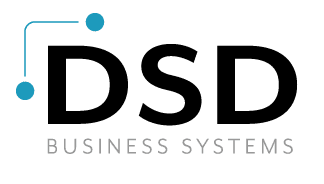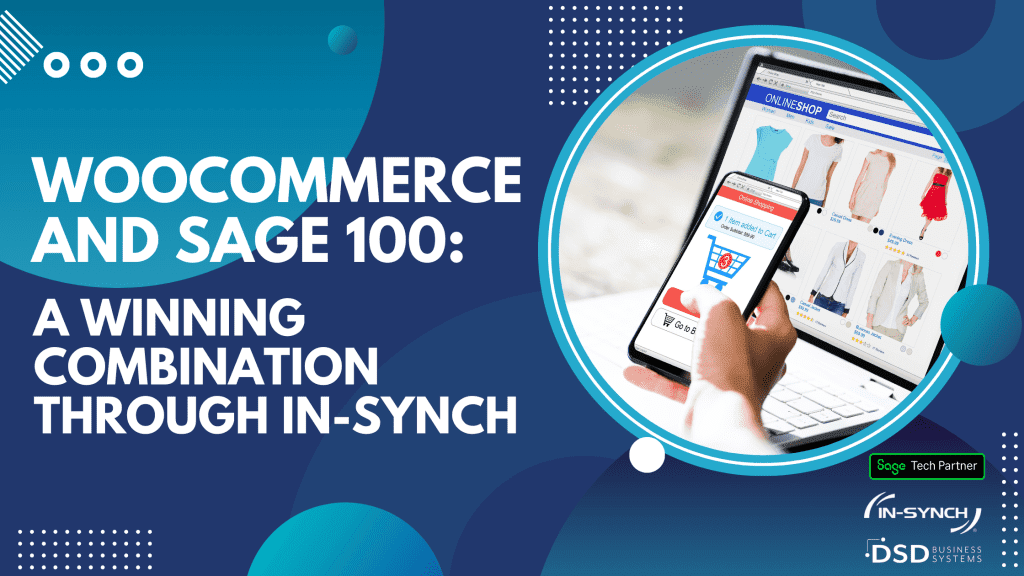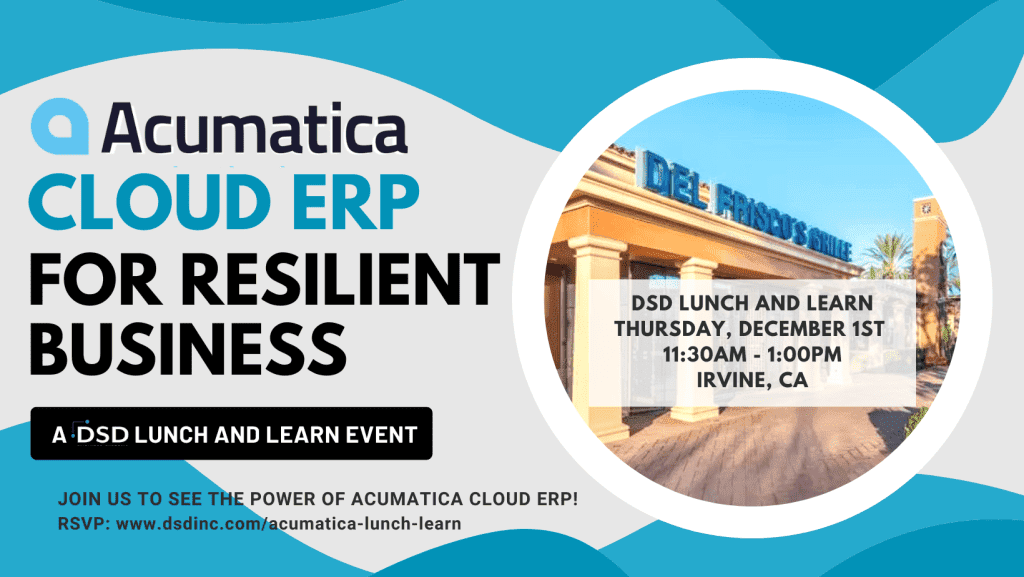How to Get Yourself Fired
Blog by Doug Deane
As you know, the “How to Get yourself Fired” series of articles gives disgruntled employees tips on getting themselves fired so that they can collect unemployment benefits while they spend some much-needed time at the beach. In this article, we will be assisting CFO’s and Accounting Managers in getting themselves fired. One of the easiest ways to accomplish this, and the least suspicious, is to botch an accounting or ERP software evaluation for your company. It’s done all the time, by smart and well-intentioned people.
I’ve listed some of the highlights – in a nutshell, you should avoid doing any of these:
- Don’t change your existing system until well after it has run out of capacity to handle your business issues. That way, you’ll be under tremendous pressure to get a new system in, because your old one has failed, and this will cause mistakes and errors by your staff. The added pressure will also prevent you from going parallel with your new system, in order to check its accuracy and its adherence to your business model.
- Do not compromise with your software vendors. If they indicate that one or more of your processes or procedures can be changed to make your company more efficient or profitable, definitely do not succumb to their advice. The last thing you want is to make more money for your company. That’s not the kind of behavior that gets you fired.
- Do not create a task force to evaluate the software. You’ll be much better off doing this in a vacuum, because it’s quite likely that others who you recruit will sabotage you, without knowing it. After all, they may enjoy working at your company.
- Do not tell your software vendor what’s special or unusual about your company. The less you tell them, the less likely they will provide a system that actually meets your company’s needs.
- Whatever you do, do not involve your sales team in the software evaluation process. That is a recipe for disaster. They will probably insist on integration with Customer Relationship Management (CRM) software, and they’ll want to know how the new system makes it easier for them to sell your products and to service your customers’ needs. Yikes!
- Do not select a system that has the capability to be customized to meet your needs. That would defeat all of your personal goals, wouldn’t it?
- Avoid having your software vendor perform a complete Needs Analysis. The less information they have, the better.
Now, you’ll need to select one or more vendors to assist you in your evaluation. You should probably not pick an experienced and honored vendor like DSD Business Systems or one of its partners, who sells the most popular, widely used, and full featured products like Sage MAS90, Sage MAS500 or Sage Accpac ERP. And you certainly shouldn’t select a highly ethical reseller like DSD or its partners, who are at the highest level of recognition by the Better Business Bureau, who is a recent Finalist in the BBB Torch Award competition, and who was recently the first-ever winner of the Sage Community Service Award. This is a recipe for success, which is not the goal here.
The next step in your evaluation process is to not create an Accounting Software Checklist. If your software vendor proposes that you use such a checklist, let them know that you already have one, and that you’ll use it appropriately (i.e. not at all).
Next up on your list of things to avoid doing is creating a list of questions for your prospective vendors.
Let me highlight certain details:
- Do not investigate any areas in your company that are now manual and which may possibly be automated by your new system. The only exception to this rule is when you’re sure that there’s a disgruntled employee who wouldn’t mind being laid off. After all, you’re not the only one who could use a better tan.
- Do not ask your software vendor if they can produce any much-needed reports that your current system cannot. If the new system doesn’t produce them either, your boss will just assume that it’s an impossible need that no software can fulfill.
- Do not bring up the Internet. There’s no better way for your company to connect with your customers, staff and vendors, so this is an area you should avoid at all cost.
- Steer the discussions away from your customers’ needs. Their needs don’t get you a paid vacation to the beach for the next 6 months, do they?
The next important topic is “saving money”. This works at odds with your hidden agenda, so you’ll need to know how to spend the most amount of money on the system that is the most poorly matched to your business needs.
Of course, you want to avoid all those suggestions, in order to spend as much money as possible on a new system that doesn’t do what you need it to.
One of the most important aspects of any ERP software evaluation is the Needs Analysis. You should avoid having one performed, but if your vendor insists, then it must not be thorough. A top notch vendor will explore every nook and cranny of your business, determining where your current system falls short, documenting your business processes, and even suggesting improvements to your work-flow.
The most important area for you to concentrate on are unstated needs, and “innocent” inaccuracies in your responses to your software vendor’s interview questions. If you have a special need that is not obvious, and your vendor does not ask that question, then who’s to blame? Remember, your goal is to have a system installed that cannot do what your company needs it to do.
So let’s do some damage control. Let’s say that you’ve been working with a vendor like DSD Business Systems or one of its partners, who has access to multiple ERP software solutions, who has come into your offices and performed a thorough and detailed needs analysis. They have met with all your key staff, they’ve investigated all your reporting and information needs, they’ve looked at Internet connectivity and they’ve had extensive discussions with your sales department. Based on their research, they’ve selected the one product that best meets your needs and they’ve given you one or more product demos, and they proposed a very competitive price and possibly even a fixed price for the implementation services.
Are you completely screwed?
No, not yet. Simply get on the Internet and Google “????? discount”, where ????? is replaced by the name of the software product that has been proposed. For example; “mas90 discount” or “accpac discount” or “mas500 discount”. You get the idea. This will enable you to locate a software vendor whose business model is roughly equivalent to your own personal agenda. They have taken a highly sophisticated piece of intellectual property, and turned it into a commodity.
Most software vendors are referred to as “Value Added Resellers” whereas discount vendors are referred to as “Value Subtracted Resellers”. You definitely want as much value as possible subtracted from your system. Such a vendor can provide you with a lower purchase cost than your diligent vendor, because they have not taken the time to be diligent. That’s a significant cost savings, which may tip the scales in favor of the discount vendor. Best yet, they will not understand all your business processes or needs, so there is a high likelihood that the implementation will be botched or go terribly over budget. These are both extremely helpful to you.
So, let’s discuss the worst case scenario. Someone like DSD Business Systems has come in, and they’ve proposed a wonderful solution for your company, after having performed a thorough needs analysis. You brought up the discount vendors, but your management team overrode that option, correctly thinking that it might lead to trouble (for them).
The only straw you have left to grasp at is doing your best to sabotage the implementation.
In order to ensure the failure of your ERP software implementation, you have to prepare the soil, much like a farmer does, except that you want those crops to fail. This document provides you with a great list of what not to do, which I’ve summarized below:
- Do not build a case for change. The more that your staff feels that the new system is an inconvenience, the more likely they will be to fight it at every turn.
- Do not keep your staff informed about progress, and under no circumstances should you let them know how their jobs will be affected by the new changes. It is advisable to have them all believe that the new system could replace any or all of them. Posting Dilbert cartoon strips or pictures of trained monkeys on the lunch room bulletin board is a nice touch.
- Invest as little as possible in employee training. Tell your boss that you’ll be the only one trained, in order to save money, and that you’ll train everyone else. Gotcha!
- Do not support your managers’ need for change. Keep them in the dark about the new implementation, until it’s time to go live. They are much more responsible than you are, so the less they’re involved, the more likely you are to reach Margaritaville.
This should be a foolproof way of Getting Yourself Fired, if you’re a CFO or Accounting Manager doing an ERP software evaluation. Hopefully, the software disaster that you leave in your wake will not be fatal for your previous employer. You want to avoid putting those severance checks in jeopardy.
For more ideas visit https://www.dsdinc.com/dsd/featured-topics.html.
In the next installment, we’ll discuss creative and survivable ways for airline pilots to Get Themselves Fired.
———————————–
Doug Deane is President of DSD Business Systems, a national provider of on-demand (cloud) and on-premises ERP and CRM software, specializing in wholesale distribution, manufacturing, warehouse management, inventory, business intelligence and eCommerce software. DSD offers Sage 100 (formerly MAS 90), Sage 300 (formerly Accpac), Sage 500 (formerly MAS 500), NetSuite, Sage FAS, Sage HRMS (formerly Abra), Sage CRM, Sage SalesLogix, Extended Solutions, and Custom Programming.








